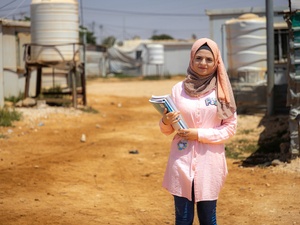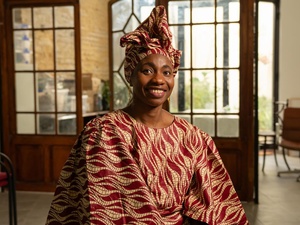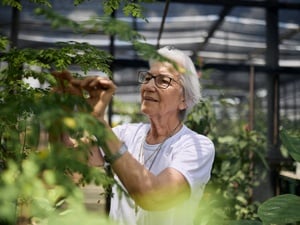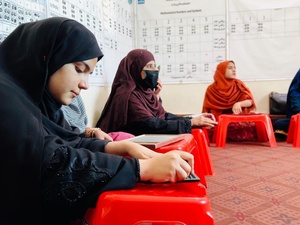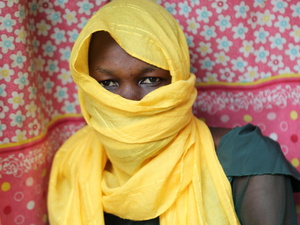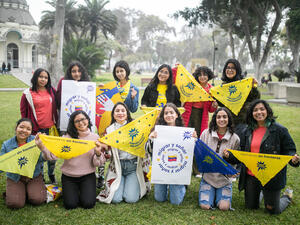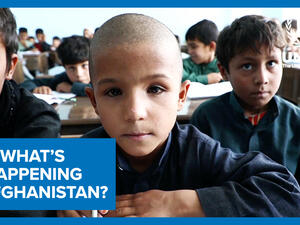Refugee women embrace self-help on International Women's Day
Refugee women embrace self-help on International Women's Day
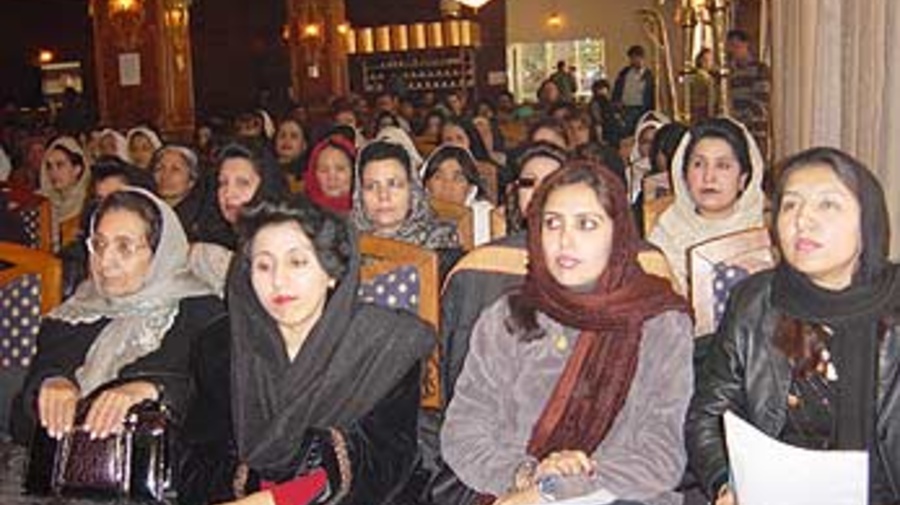
Refugee women at an International Women's Day presentation in Kabul.
GENEVA, March 12 (UNHCR) - Kountaya camp exploded in song and dance last Saturday as Sierra Leonean and Liberian refugee women gathered at the camp in Guinea's Albadaria district to mark International Women's Day, which was observed all over the world on March 8.
Through skits and role-play at the camp of nearly 20,000, refugee women encouraged one another to learn to read and write, to acquire skills through various vocational training schemes offered in the camp or to set up small-scale businesses so as to improve their lot as refugee women. The highlight of the day was the launch of a programme aimed at providing alternative jobs for refugee women practitioners of female genital mutilation (FGM).
Practitioners of FGM in many parts of Africa are often reluctant to give up the practice because it is a source of livelihood. Many say they would need alternative sources of income or employment if they are to stop the practice. Agriculture has been proposed as one such alternative by refugee women in Guinea's Kountaya camp.
In the Afghan capital, Kabul, the women's day event organised by UNHCR and the Ministry of Refugees and Repatriation on March 6, opened with songs from Afghan children.
In his welcoming remarks, UNHCR's Chief of Operations in Afghanistan, Filippo Grandi, called for more participation of women in decision-making at the Afghan Ministry of Refugees and Repatriation. He also urged Afghan women to support UNHCR's work and to ensure that every returnee woman benefits from the refugee agency's assistance programmes.
"I am very happy to have been invited to such a gathering after a long time," said Afghan teacher Benazir Hotaki, 40. "In recent years, especially during the last five years, women in Afghanistan have experienced the darkest period of their lives."
Afghan women could not believe that they could return to school, universities and offices alongside their brothers, said Hotaki, who lamented, "However, women in our society have yet to receive the full attention they deserve, they are still kept away from taking part in national affairs."
In Slovakia, a conference on human rights was organised by the UN Development Fund for Women (UNIFEM), with support from UNHCR and other UN agencies. Speaking to participants at the conference in Bratislava, a UNHCR official explained the difficulties faced by refugee women during flight and exile. She talked of the ever-growing problem of trafficking in women and called for more commitment to improving the lives of refugee women.
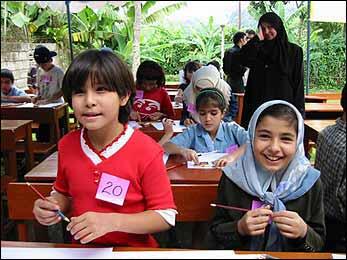
Refugee children at the Indonesian event, where participants discussed education for refugee girls.
In Indonesia, the UN refugee agency organised a seminar at a refugee centre in Cipayung, some 80 km from the capital, Jakarta. Agency officials, non-governmental partners and refugees - mainly from Iraq and Afghanistan - discussed issues of human rights, including the right to education and the need to give girls the same opportunities for schooling as boys.
In a message to mark International Women's Day, UNHCR's Deputy High Commissioner Mary Ann Wyrsch last week noted that girls made up 39 per cent of refugee children attending UNHCR-assisted primary schools last year. This figure dropped to 29 per cent at secondary school. The agency is taking steps to increase school attendance of refugee girls.


